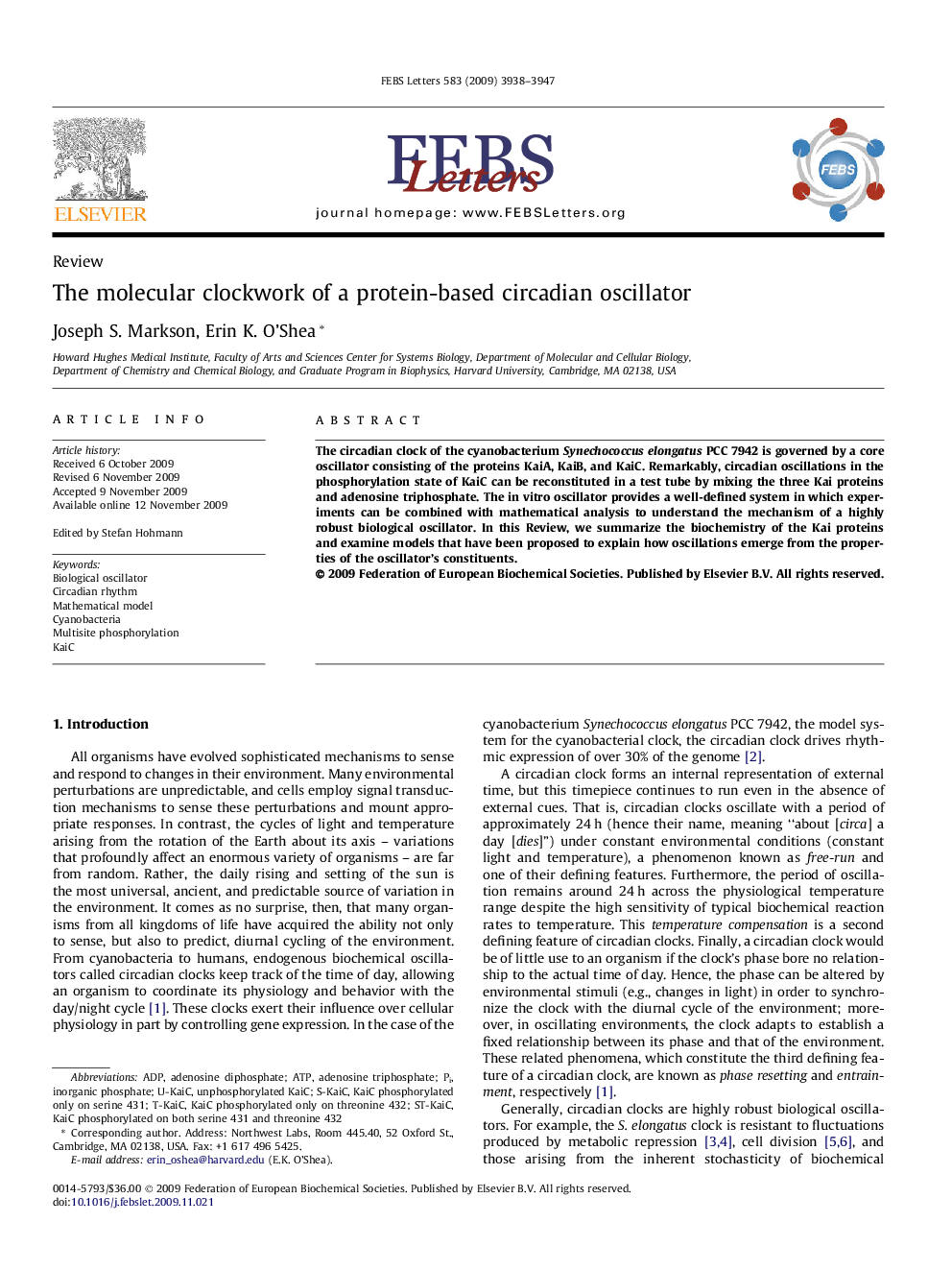| Article ID | Journal | Published Year | Pages | File Type |
|---|---|---|---|---|
| 2049605 | FEBS Letters | 2009 | 10 Pages |
Abstract
The circadian clock of the cyanobacterium Synechococcuselongatus PCC 7942 is governed by a core oscillator consisting of the proteins KaiA, KaiB, and KaiC. Remarkably, circadian oscillations in the phosphorylation state of KaiC can be reconstituted in a test tube by mixing the three Kai proteins and adenosine triphosphate. The in vitro oscillator provides a well-defined system in which experiments can be combined with mathematical analysis to understand the mechanism of a highly robust biological oscillator. In this Review, we summarize the biochemistry of the Kai proteins and examine models that have been proposed to explain how oscillations emerge from the properties of the oscillator’s constituents.
Related Topics
Life Sciences
Agricultural and Biological Sciences
Plant Science
Authors
Joseph S. Markson, Erin K. O’Shea,
